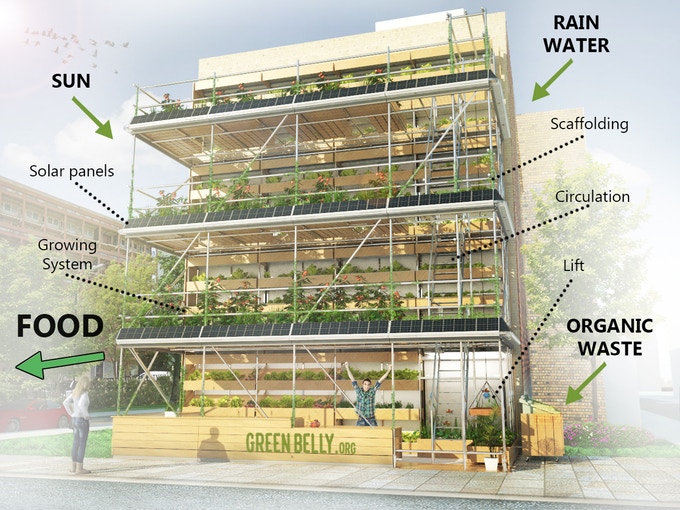
You can reap many benefits from taking free gardening classes. These classes are usually taught and supervised by experts, so they can help to teach you the basics. This includes information about soil types and fertilizers. You will also learn how to water your garden. These courses can also help you decide what kind of plants to plant. Having a good garden is important, but it can also be fun.
There are many online free gardening courses. Oregon State University offers a popular vegetable-gardening class. The course covers plant tips and where to locate a garden. It also covers disease and pest control. A comprehensive horticulture course is offered by the International Career Institute. The International Career Institute offers an online gardening course that will teach you all the skills needed to become a successful and respected horticulturist.

There are many other benefits to free gardening courses. These courses are usually longer than the ones offered by traditional colleges but will still help you to take care of your garden. You might be able to learn about certain vegetables like tomatoes and eggplants and then how to place them in pots. Because they are only three hours long, these classes are great for beginners. There are no exams to show that you have learned enough, unlike trial and error.
You can also learn more about gardening through free online courses. You can find out about the science behind gardening and how to make a beautiful garden. To take a class in gardening, you don't even need to visit a college or university. You can learn about the benefits of learning more about the art of gardening. You can even get a certification, which means you're a certified gardener.
Free online classes are great for beginners. These classes will help you understand the basics of gardening. These courses are affordable for both beginners as well as experts, and cost less than 1000 dollars. This is a wonderful way to learn about gardening and begin creating beautiful gardens. It's also fun to share your creations with your friends and family.

There are many choices for free gardening courses. For example, Oregon State University offers a free online course called Gardening 101. This course will teach you the science of growing vegetables and learning best practices. It's important to choose a suitable site for your garden and use it correctly. Fresh vegetables are a great hobby. There is no limit to what you can grow in a small space.
FAQ
How long can I keep an indoor plant alive?
Indoor plants can live for many years. To ensure new growth, it's important that you repot indoor plants every few years. Repotting is simple. Remove the old soil and place fresh compost.
Which seeds should start indoors?
A tomato seed is the best for indoor gardening. Tomatoes are very easy to grow and produce fruit year-round. When growing tomatoes in pots, be careful when transplanting them into the ground. Planting tomatoes too early can lead to soil drying out which could lead roots to rot. Also, be aware of diseases such as bacterial wilt, which can kill plants quickly.
What's the difference between aquaponic and hydroponic gardening?
Hydroponic gardening uses nutrient-rich water instead of soil to feed plants. Aquaponics uses fish tanks to grow plants. Aquaponics is like having your own farm in your home.
Can I grow vegetables indoors
Yes, you can grow vegetables inside in the winter. You will need to get a grow light or greenhouse. Before purchasing a greenhouse or grow lights, be sure to consult the local laws.
How do you prepare the soil?
Preparing soil to grow vegetables is very simple. The first step is to remove any weeds that may be in the area where your vegetable garden will be planted. You can then add organic matter, such as composted cow manure, leaves and grass clippings. Water well, and wait for the plants to sprout.
Statistics
- According to a survey from the National Gardening Association, upward of 18 million novice gardeners have picked up a shovel since 2020. (wsj.com)
- According to the National Gardening Association, the average family with a garden spends $70 on their crops—but they grow an estimated $600 worth of veggies! - blog.nationwide.com
- Most tomatoes and peppers will take 6-8 weeks to reach transplant size so plan according to your climate! - ufseeds.com
- As the price of fruit and vegetables is expected to rise by 8% after Brexit, the idea of growing your own is now better than ever. (countryliving.com)
External Links
How To
How can I keep weeds at bay in my vegetable yard?
Weeds are one of the biggest threats to growing healthy vegetables. They compete for water, nutrients, sunlight, and space. These tips can help prevent them taking over your garden.
-
All plants should be removed when they are in flower
-
Get rid of any plant debris that may be around the base.
-
Mulch can be used
-
Regular water intake
-
Rotate crops
-
Do not let the grass get too long
-
Keep soil moist
-
Plant early
-
Harvest often
-
Make compost
-
Avoid chemical pesticides
-
Organic vegetables are best
-
Heirloom seeds available
-
Start small
-
Learn more about companion planting
-
Be patient
-
Enjoy gardening!